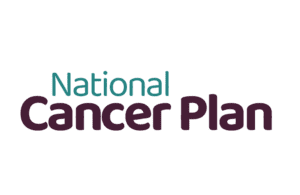
[Image courtesy of National Institutes of Health]
Today, the U.S. Department of Health and Human Services (HHS) debuted the National Cancer Plan with an ambitious albeit vague quest to “end cancer as we know it.”
Specifically, the initiative will serves as a guideline to support President Biden’s Cancer Moonshot objectives, which aims to reduce the cancer mortality rate by 50% over a 25-year period.
NCI will lead the National Cancer Plan and Cancer Moonshot program
HHS will put the National Institutes of Health’s (NIH) National Cancer Institute (NCI) in charge of the program, which supports the Cancer Moonshot initiative from President and First Lady Biden.
The President’s Cancer Moonshot has galvanized the goal of advancing the fight against cancer,” said Dr. Monica M. Bertagnolli, National Cancer Institute director, in a press release.
Despite Biden’s focus on ramping up oncology research and COVID-19 therapy development, much of the pharmaceutical industry has opposed President Biden’s efforts to reduce prescription drug pricing. Earlier this year, the trade organization PhRMA said the Biden-backed Inflation Reduction Act was already having a drag on R&D for drug development.
In any event, the U.S. cancer death has fallen significantly in recent decades. Since 1991, cancer deaths have fallen by about one-third as a result of advances in treatments, earlier cancer detection and declined tobacco use,
For pharmaceutical companies, the National Cancer Plan could increase funding and support for oncology research and development.
The initiative’s goal of eliminating inequities in cancer care, however, might lead to increased scrutiny of drug pricing and accessibility.
Historical context and the evolving focus on oncology research
The U.S. government has ramped up its focus on oncology since the 1970s. In 1971, Richard Nixon signed the National Cancer Act, kickstarting a war on cancer. “I hope in the years ahead we will look back on this action today as the most significant action taken during my Administration,” Nixon said in 1971. In his State of the Union address that same year, Nixon said, “The time has come in America when the same kind of concentrated effort that split the atom and took man to the moon should be turned toward conquering this dread disease”.
In particular, the National Cancer Act bolstered research efforts and boosted cancer research funding. The National Cancer Act also established the National Cancer Program, an initiative of the National Cancer Institute (NCI) under the NIH umbrella.
In 2016, then Vice-President Biden launched an original Cancer Moonshot initiative. Drawing inspiration from his son Beau who died a year earlier from brain cancer, Biden worked to accelerate accelerate cancer research, improve patient access to care, and foster collaboration among researchers.
The original Cancer Moonshot drew from a $1 billion investment proposed by Obama.